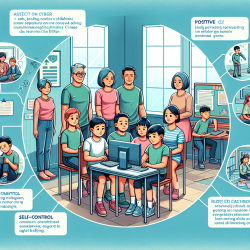Introduction to Situational Judgment Tests in Therapy
In the realm of pediatric speech therapy, creating effective and impactful therapy sessions is paramount. With the growing emphasis on data-driven approaches, the use of Situational Judgment Tests (SJTs) has emerged as a promising tool to evaluate and enhance therapeutic training. Originally developed for oncology physicians, SJTs offer a novel method to assess and improve practitioners' decision-making skills in real-world scenarios.
Understanding Situational Judgment Tests
SJTs are a form of assessment that presents practitioners with realistic scenarios they might encounter in their professional roles. Participants are required to choose the most appropriate response from a set of options. This approach not only evaluates their knowledge but also their practical application and decision-making skills.
Application in Pediatric Speech Therapy
The implementation of SJTs in pediatric speech therapy can be transformative. By simulating real-life situations, therapists can refine their skills in a controlled environment. This method allows for the assessment of various competencies, such as communication strategies, adaptability, and problem-solving abilities, which are crucial in handling diverse speech and language disorders in children.
Benefits of SJTs for Practitioners
Incorporating SJTs into training programs for speech therapists can lead to several benefits:
- Enhanced Decision-Making: SJTs provide a platform for therapists to practice and improve their decision-making skills, crucial for tailoring interventions to individual needs.
- Objective Assessment: By providing standardized scenarios, SJTs offer an objective measure of a therapist's competencies, reducing biases in performance evaluations.
- Feedback and Improvement: The results from SJTs can guide therapists in identifying areas for improvement, facilitating targeted professional development.
Implementing SJTs in Training Programs
To effectively implement SJTs in speech therapy training, it is essential to develop scenarios that reflect the unique challenges faced by pediatric therapists. Collaboration with experienced practitioners can ensure that these scenarios are both realistic and relevant. Additionally, integrating SJTs into e-learning platforms can provide therapists with flexible and accessible training opportunities.
Encouraging Further Research
While the initial results from implementing SJTs in oncology training are promising, further research is needed to adapt and validate these tests for pediatric speech therapy. Expanding the pool of scenarios and participants can enhance the reliability and applicability of SJTs in this field.
To read the original research paper, please follow this link: Development and Implementation of Situational Judgment Tests as an Evaluation Method for Training Oncology Physicians: Application in the KOKON-KTO Training.










